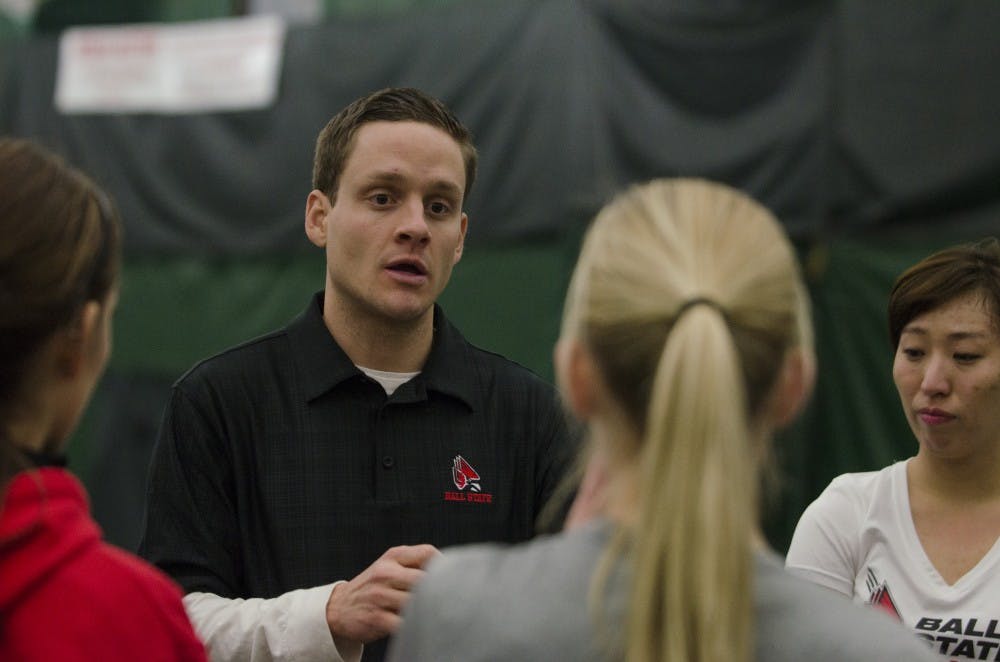The women’s tennis team is breaking away from previous years where the team sought out-of-state and foreign talent. Instead, head coach Max Norris will recruit closer to home.
He will focus his recruiting efforts on players he finds in the Midwest, at least for now.
“I won’t avoid or ignore good players from other areas of America or other countries,” Norris said. “A big roadblock to seeing players from farther areas is the travel aspect.”
Norris said it’s more cost effective if he attends matches and tournaments in the Midwest region to scout players. When he came into the head coaching job at the beginning of the year, the team had four players outside of the Midwest — freshman Anna Rozenberg from Maryland, freshman Toni Ormond from Canada, sophomore Ayaka Terashi from Japan and senior Kristel Sanders from the Netherlands.
“It’s good for our team that we have that added mix of players that aren’t from right around here,” Norris said. “But the team will have that mix still for a few years.”
Viktor Maksimcuk, assistant coach, is from Serbia, which Norris said adds another global aspect to the team.
“To me, international players play a big part to how strong your team is,” Maksimcuk said. “If you want to be near the top of the rankings, you need to recruit internationally.”
For Terashi, the international aspect is beneficial but also enjoyable.
“I think the team could be more diverse because I have really enjoyed getting to know not just the American players, but the players from the other countries as well,” she said. “And I’d love to learn more.”
However, Norris said it is safer to recruit nearby because he can easily get to know more about the players. When visiting tournaments, he can see how they play and learn about their personality. He said it gives him a better chance to see if a possible recruit will mesh well within the current roster.
“It’s like, if you were a boss and you were choosing between two qualified workers,” Norris said. “Would you feel safer in choosing the one that you knew five people that could back them up? Or the person that you don’t have much ability to learn about and see if they would make a good fit?”
There’s also a roadblock to recruiting foreign players, called the Test of English as a Foreign Language. This test is given to possible foreign recruits and tests them on how well they know English. Maksimcuk said he can’t recruit a player who scores too low, or the players will have to take an English course after transferring.
Terashi said it took her three years and studying almost every day to pass the test.
“It was a very difficult test,” she said. “One of my friends that has grown up here took the test and even he struggled with it.”
Norris said though his main recruitment efforts will be focused in the Midwest, he won’t close the door on foreign recruits.
“If I do learn of a foreign player that’s competing in a upcoming, nearby tournament or that was being recruited by a school but couldn’t manage to get in there, I will definitely consider her,” Maksimcuk said. “When I came to America, I had no idea what to do or expect, but it has been a great experience that has made me want to give back and coach.”





